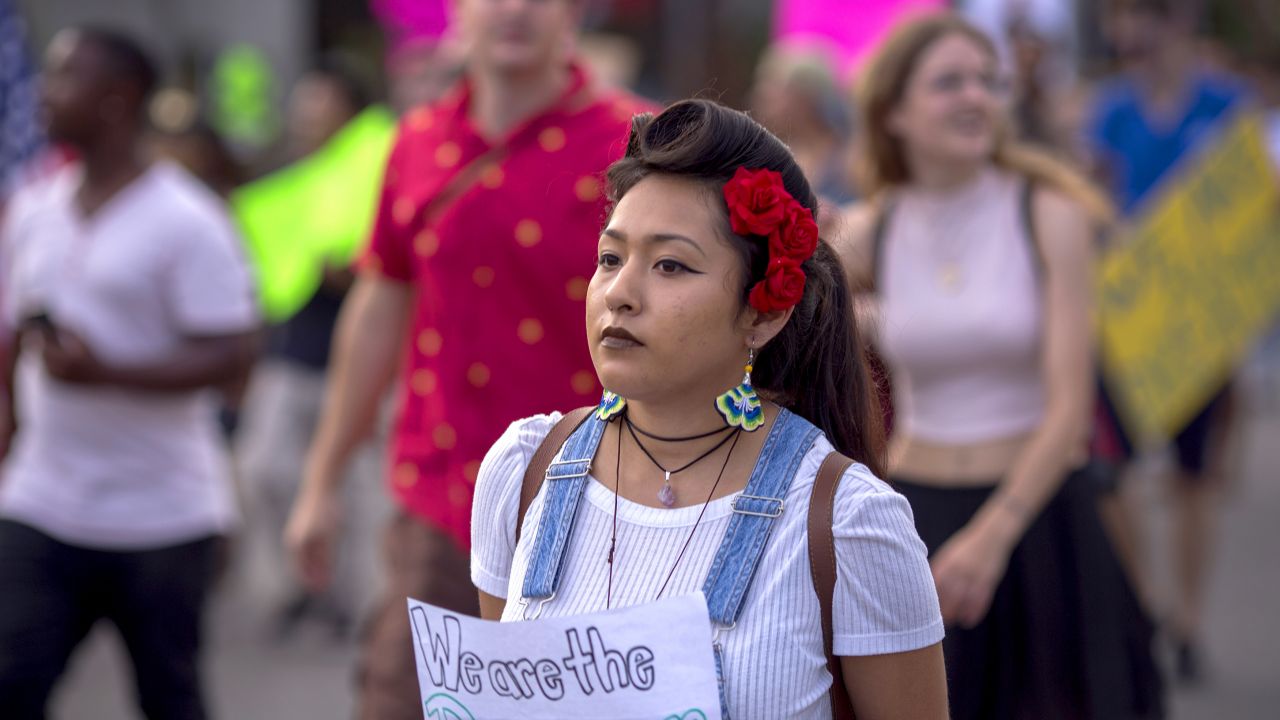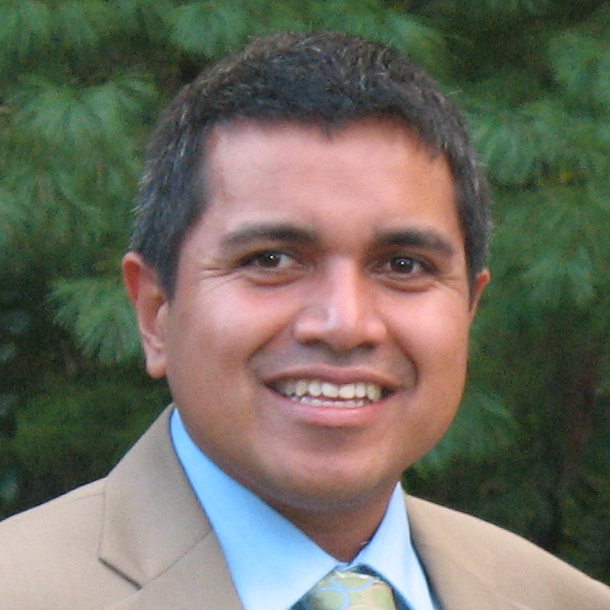
Thousands of immigrants and supporters join the Defend DACA to oppose the order by President Trump order to end DACA on Sept. 10, 2017 in Los Angeles. (Photo by David McNew/Getty Images)
It’s hard not to feel for Lisette Diaz, a young woman who explained how her life will be dramatically impacted following the announcement earlier this month that DACA (Deferred Action for Childhood Arrivals) would be rescinded.
In a recent post, Diaz, who came to the United States at the age of 6, described her feelings about President Donald Trump’s plan to end protection against deportation for 800,000 young immigrants:
So many words come to mind right now to describe how I feel about the loss of DACA: devastation, anger, rage, betrayal, hopelessness, fear, sadness. DACA transformed my life. One of the most valuable things DACA brought me was peace of mind. I knew that I would no longer have to duck my head to scurry past police officers. I knew I would have my driver’s license as a form of government-issued ID so I would not stand out when boarding a plane or even getting a library card. I stopped constantly fearing deportation. I slept easier at night knowing that I would wake up the next day with the ability to plan at least the next two years of my life and that I would be able to help my parents. I didn’t have a seemingly unending pit of fear in my stomach that often turned into full-fledged panic attacks.
The emotions evoked by Diaz’s story affect our opinions about immigration policy because human beings are intensely social creatures whose moral judgments often follow our emotional connections with others. We feel for Diaz because human beings are intensely social creatures. We are the only species that can cooperate in groups of millions of non-kin. We are able to do this, in part, through the moral emotions that bind us together.
“Moral thinking is for social doing.” That’s a phrase my colleague, Jonathan Haidt, who is also a social psychologist focusing on morality, often uses to encapsulate the idea that human morality is generally not based on living up to an abstract ideal, but rather arose as a function of our evolution into cooperative societies.
The proliferation of social media, memes, reality TV, YouTube and celebrity gossip illustrate just how unique human beings are. We form arbitrary groups around sports teams and band together to fight and gossip about other arbitrary groups, at times showing ourselves to be “better” fans by calling out or denigrating fans of opposing teams.
In recent years, partisan identity has become the most prominent tribal affiliation, with people being more willing to discriminate against people of other ideologies than against people of other races. Look no further than the comments on Facebook and you can see the collaborative power of one group — for example, people who support loosening restrictions on immigration — versus another — those who want to tighten them.
People on both sides of this ideological divide have done terrible things to “Dreamers,” ostensibly to further their group’s goals, even as most people agree that these individuals should be allowed to remain in this country and continue to lead productive lives. House Speaker Paul Ryan (R-WI) has suggested that “we want to give people peace of mind” and Trump himself has said that “We love the Dreamers.”
Yet Republicans who have explicitly stated that DACA recipients should be allowed to stay in the United States still use the dreamers as leverage toward getting other things they want. Democrats are hardly blameless, having had majorities in Congress and wanting to use this group as a sympathetic pathway to further comprehensive immigration reform.
Politicians on both sides have felt that their groups’ ends justified using DACA recipients as a means, despite the terrible emotional toll that legal uncertainty exacts upon this group of mostly young people.
While most Americans are sympathetic to DACA recipients, there certainly are those who are not. Taken at face value, they often talk about the economy as a zero sum game where immigrants take jobs from native-born Americans by the “hundreds of thousands.” One may argue with their logic, but the economic reality of everyday lives in places where DACA is least popular is a difficult one. It’s hardly the best place to put “moral thinking as social doing” into practice.
Research confirms that in times of scarcity, people are understandably less generous and get more concerned about rewarding unlawful behavior. It would be easy for those of us who support legal status for DACA recipients to focus on how “wrong” people on the other side of the debate are. But if we want to change people’s minds on immigrants, it is worth reflecting on what actually drives moral judgments and political opinions — not facts about who contributes what to the economy — but the social and emotional factors that bind people together into “us” and “them” and which are especially strong when our group feels threatened.
How can we escape group-based moral judgment? It can be hard to be generous to strangers — until you feel like you and your neighbors have enough to share. And it is easy to blame “them” — until you get to know them such that they are no longer strangers. That is why it’s important for those rooting for Dreamers to read and share their stories.
I am hopeful that the dreamers like Diaz will finally receive legal status — in part due to the way they have humanized the issue of living a life of uncertainty by telling their stories. If we can humanize the Dreamers and all the other “others,” from Trump voters to transgender people and everyone in between, perhaps we can prevent the next marginalized group from being used as a foil for partisan groups to stake out their positions.

